Events
| Name | organizer | Where |
|---|---|---|
| MBCC “Doing Business with Mongolia seminar and Christmas Receptiom” Dec 10. 2024 London UK | MBCCI | London UK Goodman LLC |
NEWS
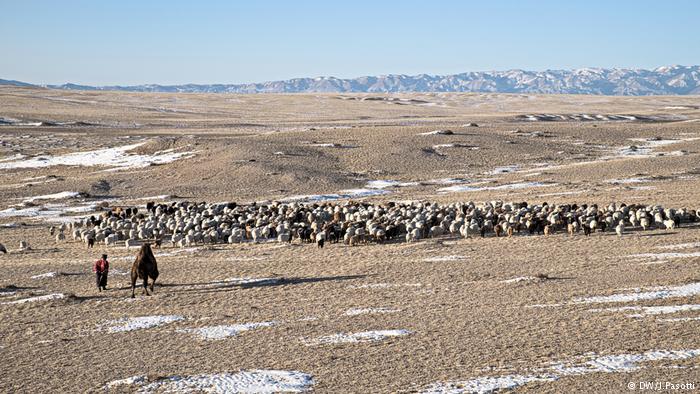
Faster than disaster: beating the white death in Mongolia www.redcross.org.uk
Increasingly, Mongolian herders endure some of the toughest winters on earth and risk losing everything. But a new Red Cross system may make all the difference.
It’s hard to imagine what -60F really feels like.
But every few years, that’s reality in Mongolia. Swathes of the country are at the mercy of the dzud: a pitiless weather phenomenon, which brings an arid summer followed by a biting, brutal winter.
Known locally as the ‘white death’, dzuds are a double blow for the 40 per cent of Mongolians who rely on raising livestock. First, the grass and wheat that their cattle depend on dry up in the summer drought. Herders cannot collect and store enough hay and food for their animals, leaving them weak and vulnerable.
Then in winter, where average night-time temperatures plummet to -40 to -60F (-40 to -51C), livestock are unable to feed through the frozen snow and freeze or starve. Herders can only despair as their precious animals pile up dead across the packed snow. Some animals die as they stand.
The herders rely on sheep, cattle, yaks, camels, horses and goats for their income. When these animals die, families run out of food, lose their livelihoods and use up their savings to survive. Many are forced to leave the countryside and move to the slums of industrial cities where there may – or may not – find paid work.
In desperation, many Mongolian herders, such as Bayankhand, carry their weakest animals into the yurt or ‘ger’ they share with their family. It can feel crowded over the long winter months.
In previous years, Bayankhand lost 400 of her 700 cows, sheep and goats early on in the dzud. She says:
If the animals get weak and die in front of my eyes, it's very, very hard. I feel so sorry for them. I tried to save them but I couldn't.
She tried everything to keep the rest of the herd alive and brought the weakest animals, like the calf in the picture above, into her ger.
This year, Mongolia fell prey to another dzud. According to the Ministry of Agriculture, 402,300 animals had died by February 2021 - and that’s nothing compared to 2010, where freak weather saw up to 11 million animals perish.
Dzuds are unique to Mongolia and used to happen around twice a decade. Mongolians are certainly no strangers to harsh weather. But it does seem that dzuds are getting more frequent.
According to the UN, dzuds are now happening every year in some parts of the country. Climate change is a major factor along with overgrazing and problems managing the land.
Heavy rain, extreme temperatures and baking summers have turned vast areas of the grassland (steppes) to desert.
But there is hope.
Striking before the dzud
While the Red Cross has supported communities affected by the extreme weather for some time now, it’s been at the height of the dzud, when animals were already dying.
As aid is more effective when delivered early, we have found a way to take preventive action before the dzud hits.
Working with the National Agency for Meteorology and Environmental Monitoring, the Red Cross set up a new early action system.
Called forecast-based financing (FbF), it was activated for the first time ever in Mongolia in the winter of 2019-20 and again early in 2021.
FbF is a way of getting humanitarian funding to communities before a disaster strikes. The system combines weather forecasts and other data to trigger the release of funding ahead of extreme weather events. The overall goal is to prevent natural hazards from becoming disasters and reduce human suffering.
If it looks like an extreme event – such as a dzud – is likely to strike, FbF activates an early action protocol.
This trigger releases funding for a series of preventive actions, and the Mongolian Red Cross can then spring into action and protect herder communities and their animals before it’s too late.
Based on the 2020/21 winter’s dzud risk map by the National Met Agency and calculations from the IFRC Climate Centre, more than 60 per cent of Mongolia was at risk of a dzud. Five provinces had a very high risk of 20 per cent or more of their land area being affected. The early action protocol was triggered.
The Mongolian Red Cross was then able to provide help worth more than CHF 245,000 to more than 7,000 vulnerable people across 19 provinces in time to get ready for the harsh winter.
This included lifesaving cash grants to buy animal fodder or any other essential household items like warm clothes, medicine or food. Red Cross staff and volunteers also provided livestock nutrition kits to save animals’ lives.
So far, this early support looks like it’s working. Studies found that early action assistance doubled the chances of herder families saving their most valuable animals – their horses. Also, fewer newborn goats and sheep died. People’s most important belongings were saved and less people fell into debt and poverty.
It’s hoped that long term, not only will FbF bring hope and relief, but also dignity to the many who still live this traditional way of life.

TBEA planning 400,000MT of polysilicon production in Inner Mongolia www.pv-tech.org
Chinese energy firm TBEA is planning to invest RMB6 billion (US$938 million) to set up a polysilicon production facility with an annual output of 400,000MT in China’s Inner Mongolia region.
TBEA will build the facility in two phases, each with 200,000MT of output per year. Construction of the first phase is set to begin in the next month and is expected to be completed within 12 months.
According to an agreement signed with local authorities last week, TBEA will also develop 5GW of renewables projects in Inner Mongolia, with the company looking to take advantage of solar and wind resources near the city of Baotou.
The polysilicon production investment will complement an additional 200,000MT polysilicon production complex that TBEA subsidiary Xinte Energy is looking to set up near Baotou. Xinte Energy raised RMB 2.3 billion from TBEA earlier to support the ramp-up of the facility, which will produce polysilicon suitable for use in n-type silicon wafers.
TBEA said its investment responds to China’s aim of reaching peak carbon emissions by 2030 and carbon neutrality by 2060.

Darkhan leather and hide complex project to be implemented with Italy www.montsame.mn
Minister of Food, Agriculture and Light Industry Z.Mendsaikhan held a meeting with Paolo Bonetti, Honorary Consul of Mongolia in Milan, Italy. At the beginning of the meeting, the sides stressed the importance of expanding bilateral cooperation in the food, agriculture, and light industry sector.
At the meeting, Minister Z.Mendsaikhan put forth a request to establish a Memorandum between the Agency of Small and Medium Enterprises of Mongolia and Italy’s SACE Insurance and IMAGRO company to assist in the project’s feasibility study and further support partnerships between small and medium enterprises between the two countries.
During their visit to Italy in May 2021, representatives of the Agriculture Ministry signed a Memorandum with the Italian side to jointly implement the project on Darkhan leather and hide processing complex. A working group led by the Agriculture Ministry’s State Secretary T.Jambaltseren made a visit to Italy in October 2021 to begin the project’s feasibility study, holding a meeting with the president of IMAGRO company that successfully implemented major projects around the world.

‘Information technology center’ to be established www.montsame.mn
Chief of Communications and Information Technology Authority B. Bolor-Erdene virtually attended the 2021 Global ICT Leadership Forum, held on November 7-8 in the Republic of Korea, and presented six strategic goals to be implemented in the nearest four years within the 'Vison 2050' development policy's objective to become a ‘Digital Nation’.
To become a ‘Digital Nation,’ it inevitably needs to establish an ‘Information Technology Center’ to improve citizens' digital literacy skills and make youth have skills to use modern technologies such as artificial intelligence and blockchain. For this goal, the Communications and Information Technology Authority of Mongolia (CITA) has virtually established a Memorandum of Understanding on the establishment of Information Technology Center with the National Information Society Agency of the RoK (NIA).
CITA Chief B. Bolor-Erdene and NIA Executive Principal Park Won-jae signed the MoU. According to the MoU, the ‘Information Technology Center’ will be established in Mongolia’s remote districts or khoroo with young population dominant and Korean specialists will provide advices on its operations for four years.
When the center is established, the latest advanced technology skills, such as artificial intelligence and big data will be taught free of charge to citizens by local and international teachers and specialists as well as skill programs are planned to be implemented. Construction work of the first center is planned to commence this December and complete in August, 2022. The opening of the center is expected to be held in November, 2022.
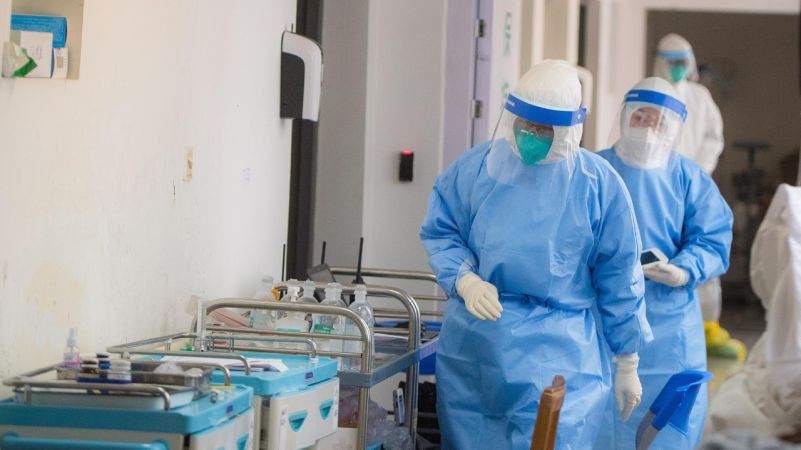
Mongolia reported 450 new daily cases of coronavirus, lowest in past 6 months www.akipress.com
Mongolia reported 450 new daily cases of coronavirus, the lowest number of cases for the past 6 months, the Ministry of Health said on Nov 8.
The total number of cases increased to 368 600.
366 new daily cases were confirmed in Ulaanbaatar, 84 in the regions of the country.
5,521 hospitalized patients are in mild, 5,487 are in serious, 1,460 are in critical and 273 are in very critical condition.
During the day, 8 people died from coronavirus raising the death toll to 1,744.
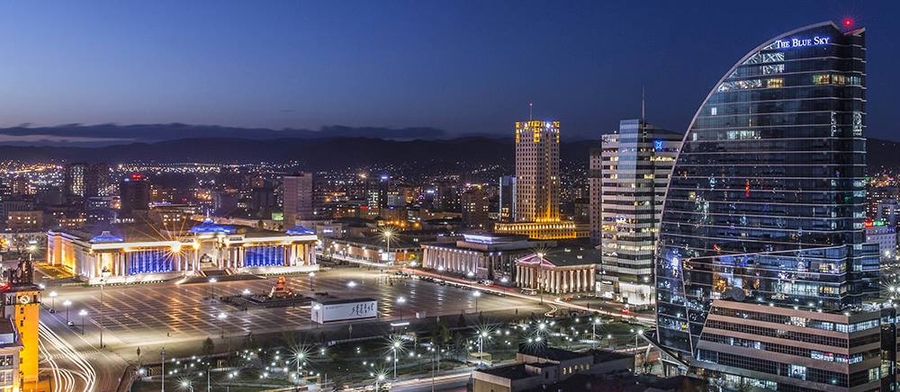
Foreigners getting visa through electronic system www.montsame.mn
A total of 64 visa types are included in the updated regulations for the issuance of Mongolian visa, and the visas for the purposes of tourism (K2), participating in cultural and arts events and sports competitions as well as creating films and content (K4), and transit (K6) are being issued online in Mongolia.
The first foreigner visited the Mongolia using an e-visa was a Korean citizen, Kim Tae-hee, who applied for a tourist or K2 visa online on October 25 and arrived in Mongolia on a Seoul-Ulaanbaatar flight on October 29, reports the Department of Foreign Nationals. Ch.Altansukh, Head of Foreign Relations and Cooperation Division of the Office of Immigration, Naturalization and Foreign Citizens (OINFC), Kim Tae Wang, First Secretary and Consul of the Embassy of the Republic of Korea in Mongolia received Kim Tae-hee and paid a courtesy.
With an aim to promote tourism and increase the number of tourists, electronic visas have been issued to the nationals of 36 countries since October 1.

World food prices are up 30% in a year www.cnn.com
London (CNN Business)World food prices have surged to the highest level in more than a decade, driven by robust demand and lackluster harvests, according to the United Nations.
Prices increased for the third consecutive month in October, rising 3% over September, according to an index published by the Food and Agriculture Organization of the United Nations (FAO). The gains were driven by a sharp rise in vegetable oil and wheat prices.
The FAO Food Price Index tracks monthly changes across a range of food commodities. The index has risen by more than 30% over the past year. It now stands at its highest level since July 2011, the FAO said on Thursday.
The price of wheat, which is grown on more land area than any other commercial crop, surged 5% in October because of reduced harvests from major exporters including Canada, Russia and the United States. Barley, rice and maize prices also increased.
Firmer prices for palm, soy, sunflower and rapeseed oils led to a 9.6% increase in the FAO vegetable price index. Palm oil prices spiked on concerns about subdued production in Malaysia due to a shortage of migrant workers.
The FAO cited high global demand for a range of products such as milk powder, poultry, vegetable oils and barley.
Food supplies and prices are under pressure from extreme weather, snarled supply chains, worker shortages and rising costs.
Supermarkets in some major economies have struggled to keep their shelves fully stocked at points during the pandemic. In the United Kingdom, where worker shortages have been exacerbated by Brexit, fast food chains have been forced to remove popular menu items because of shortages.
This week, a missive about stockpiling food from China's Ministry of Commerce sparked panic buying among the public. The notice ordered local authorities to ensure that their citizens have an "adequate supply" of essentials this winter, and to keep food costs stable.
Rising food commodity prices are leading to higher costs for consumer goods companies, some of which are passing price increases on to shoppers. Unilever (UL), Kraft Heinz (KHC) and Mondelez (MDLZ) have all hiked prices on popular products.
There may be relief coming in some areas.
Falling demand for pigs in China helped push the FAO meat price index to its third consecutive monthly decline. Sugar prices dipped in October after increasing for six months in a row.
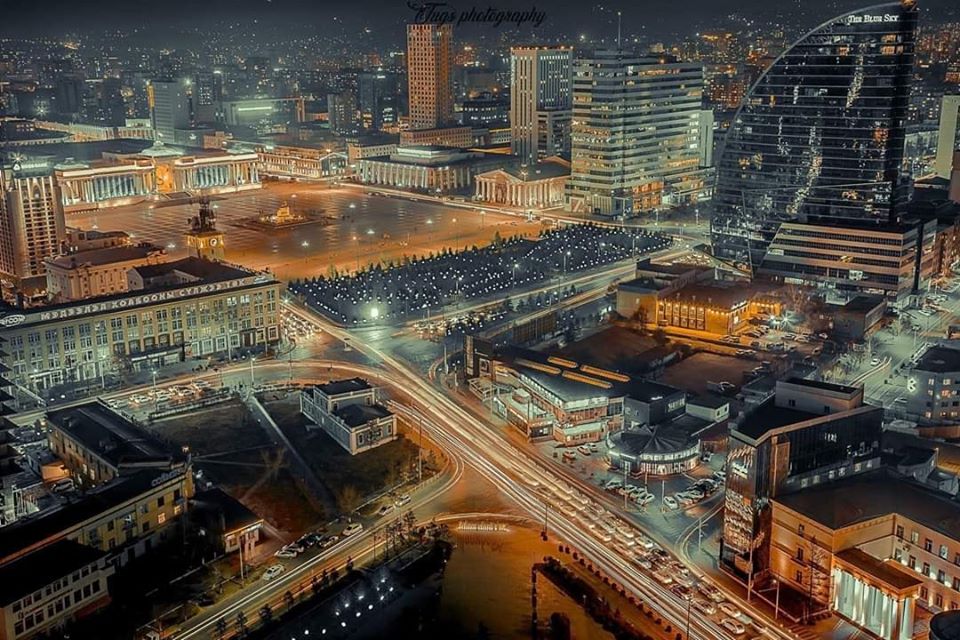
Lynk Inks Deal with Mongolia’s Largest MNO Unitel www.thefastmode.com
Lynk Global (Lynk), the world's leading cell-tower-in-space connectivity provider, has signed a commercial partnership agreement with Unitel, Mongolia’s largest mobile operator, enabling its subscribers to remain connected everywhere on the planet with ordinary cell phones.
Unitel represents Lynk’s third partnership agreement reached within the past month with a mobile network operator (MNO) as part of the American tech firm’s Flagship Carrier Program. As a carrier program partner, Unitel will now have first-to-market rights to implement Lynk’s service in Mongolia. Lynk’s global commercial service providing direct satellite to cell phone service is on schedule to be deployed next year.
Lynk will provide complete connectivity everywhere, whether land or sea, for the existing over 5.2 billion mobile subscribers through their existing MNO. Each year, more than 3 billion people, who own mobile phones, experience extended periods of disconnectivity. Another 1 billion people who can afford a mobile phone, don’t buy one because there is no connectivity -- there is Zero G (0G) -- where they live and work.
The mobile industry has nearly exhausted the ability to profitably expand coverage with ground-based cell towers world-wide, leaving geographic coverage effectively capped. Lynk’s cell-tower-in-space service will complement existing terrestrial coverage and solves the 0G coverage problem. Lynk represents the largest growth opportunity in the mobile industry today — a bigger growth opportunity than 5G.
Charles Miller, Lynk CEO
We know that Unitel is looking at many options to supplement network coverage for its subscribers. We are honored that they chose Lynk to be their partner to help meet its critical connectivity needs in Mongolia’s vast landscape.
Unitel’s CEO Enkhbat Dorjpalam
Located between Russia to our North and China to our South, our population of approximately 3.3 million people live all throughout the country, which includes the world’s 2nd largest desert, the Gobi Desert. We have unique needs for coverage in our country given our nomadic lifestyle and extremely large livestock population of more than 70 million animals which is a critical component to our society’s growth and resiliency.
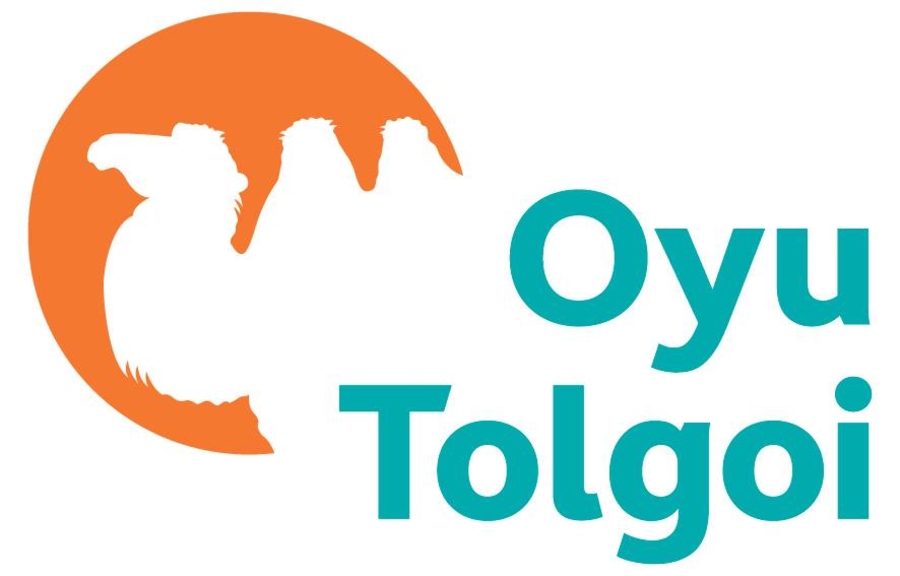
Oyu Tolgoi announces Q3 2021 performance results www.montsame.mn
Oyu Tolgoi released its latest performance scorecard, highlighting key performance metrics for the third quarter of 2021, providing an update on the underground development and its ongoing COVID-19 control measures.
We continue to prioritise the health and safety of our employees and the local community, transparently cooperating with the Government of Mongolia, Emergency Commissions of Umnugovi province, Khanbogd soum and other relevant stakeholders implementing the necessary preventive measurements. We recently donated MNT570 million to the Ministry of Health to purchase 1,000 oxygen concentrators essential for emergency care during the COVID-19 pandemic.
Chief executive officer of Oyu Tolgoi, Armando Torres, said, “I am proud of our miners building a world-class mining operation in Mongolia’s South Gobi and what we have achieved during this unprecedented time. Recently, we have reached the important milestones of celebrating the 10-year anniversary of the open pit mine, completing the breakthrough of the conveyor to decline - the largest tunnel on site that allows direct access from surface to the underground. Our teams have delivered these outstanding milestones safely and successfully, a true testament to the commitment and skills of our talented Mongolian workforce. The next major task that we all have in front of us is the commencement of the undercut. We will commence caving operations as soon as the required criteria are achieved so that we will be able to deliver the full benefits of Oyu Tolgoi to our stakeholders, including the people of Mongolia.”
In the third quarter, stringent Chinese border restrictions continued due to increased cases of COVID-19 in Mongolia. Force majeure declared on shipments on 30 March remains in place, as we continue to work closely with the Mongolian and Chinese authorities and our customers to manage the risk of supply chain disruptions. Cross-border concentrate shipments into China have resumed with some measures in place to transport greater volumes in a safe and efficient manner, however uncertainty continues to exist with the level of the COVID-19 cases in Mongolia.
Operational Update
Maintained strong focus on safety and achieved an All Injury Frequency Rate (AIFR) of 0.13 per 200,000 people/hours worked.
Maintained excellent water-conservation practices, achieving the highest water use efficiency rates per tonne of ore production, using 0.4 cubic meters of raw water per tonne of ore processed - three times less than average similar operations worldwide. Achieved an average water-recycling rate of 87.15 per cent, compared to a target of 80 per cent.
96 per cent of Oyu Tolgoi’s workforce are Mongolian citizens.
Paid US$590 million in the form of taxes, fees and other payments to the Government of Mongolia the first nine months of 2021. Since 2010, Oyu Tolgoi has paid US$3.5 billion in taxes, fees and other payments, including VAT to Mongolian suppliers.
Partnered with 739 suppliers at the end of the third quarter of 2021, including 469 national businesses, accounting for 75 per cent of the total operations procurement spend.
Q3 2021 Performance Scorecard can be viewed here.
Production Update
Mined copper production from the open pit was 16 per cent higher than the same quarter of 2020 as the operations begin to catch up on the significant impacts of the first half, with improved performance and increased mill feed following geotechnical issues in the first half, partly offset by lower manning levels due to COVID-19.
Underground Development Update
Technical progress
Project progress continues to be significantly affected by COVID-19 constraints. Site accommodation and manning levels improved in the quarter but were between 25 per cent and 50 per cent of planned requirements in order to comply with COVID-19 restrictions. The impact on project costs of the additional restrictions related to COVID-19 at the end of September 2021 is estimated to be $140 million. Despite these restrictions, construction on the Material Handling System 1 has been progressing well and is largely complete with commissioning anticipated in January 2022.
A significant milestone was achieved in August with the ‘breakthrough’ of the conveyor decline. The service decline breakthrough is anticipated in October 2021. The underground development work including truck chute construction is progressing.
Shaft 4 sinking readiness activities have been completed. Shaft 3 readiness works have commenced with the required works underway to ensure construction can resume as soon as personnel can be remobilised and additional investment is approved by the Oyu Tolgoi Board. The delays in shaft sinking due to COVID-19 restrictions and inability to mobilise subject matter experts to site are likely to result in delays of approximately nine months to commissioning of shafts 3 and 4 based on the known impacts to date.
Contractual commitments to future works such as Material Handling System 2 and concentrator upgrades continue to be delayed pending approval by the Oyu Tolgoi Board of the increased investment required to complete the project.
Other Updates
All key stakeholders have stated that they remain committed to moving the project forward and reaching a long-term solution to the issues under discussion. In September, registration of the updated Resources and Reserves was recommended by the Mongolian Minerals Council and formal registration is expected in the coming weeks. The updated Feasibility Study (OTFS20) is still required to be accepted by the relevant governmental agencies of Mongolia before the undercut can commence.
As a result of COVID-19 impacts and outstanding non-technical undercut criteria, first sustainable production will be no earlier than January 2023 (previously October 2022), subject to the timing of commencement of the undercut. The full impact on the cost of the integrated project is subject to further analysis once we have clarity on the timeline around the completion of the undercut criteria and ongoing COVID-19 restrictions.
Other milestones that need to be met in order to ensure that the project can commence caving operations (undercut) include: approval of the additional investment required to complete the project and the funds required to finance this investment must be approved by the Oyu Tolgoi Board and extension of the current power supply arrangements until an agreed long-term stable and reliable power solution can be fully implemented.
Source: www.ot.mn

Mongolian judokas win five medals at Baku Grand Slam www.montsame.mn
Mongolian athletes harvested two silver and three bronze medals at the Baku Grand Slam 2021 that took place in Azerbaijan on November 5-7.
IM A.Adiyasuren won the silver medal in women’s +78kg on the last day of the competition. On the same day, IM O.Tsetsentsengel grabbed bronze in men’s +100kg.
Moreover, IM B.Gankhaich has won silver in women’s -63kg, B.Khorloodoi took bronze in women’s -52kg, and Ts.Tsogtbaatar bronze in men’s -73kg.
- «
- 1
- 2
- 3
- 4
- 5
- 6
- 7
- 8
- 9
- 10
- 11
- 12
- 13
- 14
- 15
- 16
- 17
- 18
- 19
- 20
- 21
- 22
- 23
- 24
- 25
- 26
- 27
- 28
- 29
- 30
- 31
- 32
- 33
- 34
- 35
- 36
- 37
- 38
- 39
- 40
- 41
- 42
- 43
- 44
- 45
- 46
- 47
- 48
- 49
- 50
- 51
- 52
- 53
- 54
- 55
- 56
- 57
- 58
- 59
- 60
- 61
- 62
- 63
- 64
- 65
- 66
- 67
- 68
- 69
- 70
- 71
- 72
- 73
- 74
- 75
- 76
- 77
- 78
- 79
- 80
- 81
- 82
- 83
- 84
- 85
- 86
- 87
- 88
- 89
- 90
- 91
- 92
- 93
- 94
- 95
- 96
- 97
- 98
- 99
- 100
- 101
- 102
- 103
- 104
- 105
- 106
- 107
- 108
- 109
- 110
- 111
- 112
- 113
- 114
- 115
- 116
- 117
- 118
- 119
- 120
- 121
- 122
- 123
- 124
- 125
- 126
- 127
- 128
- 129
- 130
- 131
- 132
- 133
- 134
- 135
- 136
- 137
- 138
- 139
- 140
- 141
- 142
- 143
- 144
- 145
- 146
- 147
- 148
- 149
- 150
- 151
- 152
- 153
- 154
- 155
- 156
- 157
- 158
- 159
- 160
- 161
- 162
- 163
- 164
- 165
- 166
- 167
- 168
- 169
- 170
- 171
- 172
- 173
- 174
- 175
- 176
- 177
- 178
- 179
- 180
- 181
- 182
- 183
- 184
- 185
- 186
- 187
- 188
- 189
- 190
- 191
- 192
- 193
- 194
- 195
- 196
- 197
- 198
- 199
- 200
- 201
- 202
- 203
- 204
- 205
- 206
- 207
- 208
- 209
- 210
- 211
- 212
- 213
- 214
- 215
- 216
- 217
- 218
- 219
- 220
- 221
- 222
- 223
- 224
- 225
- 226
- 227
- 228
- 229
- 230
- 231
- 232
- 233
- 234
- 235
- 236
- 237
- 238
- 239
- 240
- 241
- 242
- 243
- 244
- 245
- 246
- 247
- 248
- 249
- 250
- 251
- 252
- 253
- 254
- 255
- 256
- 257
- 258
- 259
- 260
- 261
- 262
- 263
- 264
- 265
- 266
- 267
- 268
- 269
- 270
- 271
- 272
- 273
- 274
- 275
- 276
- 277
- 278
- 279
- 280
- 281
- 282
- 283
- 284
- 285
- 286
- 287
- 288
- 289
- 290
- 291
- 292
- 293
- 294
- 295
- 296
- 297
- 298
- 299
- 300
- 301
- 302
- 303
- 304
- 305
- 306
- 307
- 308
- 309
- 310
- 311
- 312
- 313
- 314
- 315
- 316
- 317
- 318
- 319
- 320
- 321
- 322
- 323
- 324
- 325
- 326
- 327
- 328
- 329
- 330
- 331
- 332
- 333
- 334
- 335
- 336
- 337
- 338
- 339
- 340
- 341
- 342
- 343
- 344
- 345
- 346
- 347
- 348
- 349
- 350
- 351
- 352
- 353
- 354
- 355
- 356
- 357
- 358
- 359
- 360
- 361
- 362
- 363
- 364
- 365
- 366
- 367
- 368
- 369
- 370
- 371
- 372
- 373
- 374
- 375
- 376
- 377
- 378
- 379
- 380
- 381
- 382
- 383
- 384
- 385
- 386
- 387
- 388
- 389
- 390
- 391
- 392
- 393
- 394
- 395
- 396
- 397
- 398
- 399
- 400
- 401
- 402
- 403
- 404
- 405
- 406
- 407
- 408
- 409
- 410
- 411
- 412
- 413
- 414
- 415
- 416
- 417
- 418
- 419
- 420
- 421
- 422
- 423
- 424
- 425
- 426
- 427
- 428
- 429
- 430
- 431
- 432
- 433
- 434
- 435
- 436
- 437
- 438
- 439
- 440
- 441
- 442
- 443
- 444
- 445
- 446
- 447
- 448
- 449
- 450
- 451
- 452
- 453
- 454
- 455
- 456
- 457
- 458
- 459
- 460
- 461
- 462
- 463
- 464
- 465
- 466
- 467
- 468
- 469
- 470
- 471
- 472
- 473
- 474
- 475
- 476
- 477
- 478
- 479
- 480
- 481
- 482
- 483
- 484
- 485
- 486
- 487
- 488
- 489
- 490
- 491
- 492
- 493
- 494
- 495
- 496
- 497
- 498
- 499
- 500
- 501
- 502
- 503
- 504
- 505
- 506
- 507
- 508
- 509
- 510
- 511
- 512
- 513
- 514
- 515
- 516
- 517
- 518
- 519
- 520
- 521
- 522
- 523
- 524
- 525
- 526
- 527
- 528
- 529
- 530
- 531
- 532
- 533
- 534
- 535
- 536
- 537
- 538
- 539
- 540
- 541
- 542
- 543
- 544
- 545
- 546
- 547
- 548
- 549
- 550
- 551
- 552
- 553
- 554
- 555
- 556
- 557
- 558
- 559
- 560
- 561
- 562
- 563
- 564
- 565
- 566
- 567
- 568
- 569
- 570
- 571
- 572
- 573
- 574
- 575
- 576
- 577
- 578
- 579
- 580
- 581
- 582
- 583
- 584
- 585
- 586
- 587
- 588
- 589
- 590
- 591
- 592
- 593
- 594
- 595
- 596
- 597
- 598
- 599
- 600
- 601
- 602
- 603
- 604
- 605
- 606
- 607
- 608
- 609
- 610
- 611
- 612
- 613
- 614
- 615
- 616
- 617
- 618
- 619
- 620
- 621
- 622
- 623
- 624
- 625
- 626
- 627
- 628
- 629
- 630
- 631
- 632
- 633
- 634
- 635
- 636
- 637
- 638
- 639
- 640
- 641
- 642
- 643
- 644
- 645
- 646
- 647
- 648
- 649
- 650
- 651
- 652
- 653
- 654
- 655
- 656
- 657
- 658
- 659
- 660
- 661
- 662
- 663
- 664
- 665
- 666
- 667
- 668
- 669
- 670
- 671
- 672
- 673
- 674
- 675
- 676
- 677
- 678
- 679
- 680
- 681
- 682
- 683
- 684
- 685
- 686
- 687
- 688
- 689
- 690
- 691
- 692
- 693
- 694
- 695
- 696
- 697
- 698
- 699
- 700
- 701
- 702
- 703
- 704
- 705
- 706
- 707
- 708
- 709
- 710
- 711
- 712
- 713
- 714
- 715
- 716
- 717
- 718
- 719
- 720
- 721
- 722
- 723
- 724
- 725
- 726
- 727
- 728
- 729
- 730
- 731
- 732
- 733
- 734
- 735
- 736
- 737
- 738
- 739
- 740
- 741
- 742
- 743
- 744
- 745
- 746
- 747
- 748
- 749
- 750
- 751
- 752
- 753
- 754
- 755
- 756
- 757
- 758
- 759
- 760
- 761
- 762
- 763
- 764
- 765
- 766
- 767
- 768
- 769
- 770
- 771
- 772
- 773
- 774
- 775
- 776
- 777
- 778
- 779
- 780
- 781
- 782
- 783
- 784
- 785
- 786
- 787
- 788
- 789
- 790
- 791
- 792
- 793
- 794
- 795
- 796
- 797
- 798
- 799
- 800
- 801
- 802
- 803
- 804
- 805
- 806
- 807
- 808
- 809
- 810
- 811
- 812
- 813
- 814
- 815
- 816
- 817
- 818
- 819
- 820
- 821
- 822
- 823
- 824
- 825
- 826
- 827
- 828
- 829
- 830
- 831
- 832
- 833
- 834
- 835
- 836
- 837
- 838
- 839
- 840
- 841
- 842
- 843
- 844
- 845
- 846
- 847
- 848
- 849
- 850
- 851
- 852
- 853
- 854
- 855
- 856
- 857
- 858
- 859
- 860
- 861
- 862
- 863
- 864
- 865
- 866
- 867
- 868
- 869
- 870
- 871
- 872
- 873
- 874
- 875
- 876
- 877
- 878
- 879
- 880
- 881
- 882
- 883
- 884
- 885
- 886
- 887
- 888
- 889
- 890
- 891
- 892
- 893
- 894
- 895
- 896
- 897
- 898
- 899
- 900
- 901
- 902
- 903
- 904
- 905
- 906
- 907
- 908
- 909
- 910
- 911
- 912
- 913
- 914
- 915
- 916
- 917
- 918
- 919
- 920
- 921
- 922
- 923
- 924
- 925
- 926
- 927
- 928
- 929
- 930
- 931
- 932
- 933
- 934
- 935
- 936
- 937
- 938
- 939
- 940
- 941
- 942
- 943
- 944
- 945
- 946
- 947
- 948
- 949
- 950
- 951
- 952
- 953
- 954
- 955
- 956
- 957
- 958
- 959
- 960
- 961
- 962
- 963
- 964
- 965
- 966
- 967
- 968
- 969
- 970
- 971
- 972
- 973
- 974
- 975
- 976
- 977
- 978
- 979
- 980
- 981
- 982
- 983
- 984
- 985
- 986
- 987
- 988
- 989
- 990
- 991
- 992
- 993
- 994
- 995
- 996
- 997
- 998
- 999
- 1000
- 1001
- 1002
- 1003
- 1004
- 1005
- 1006
- 1007
- 1008
- 1009
- 1010
- 1011
- 1012
- 1013
- 1014
- 1015
- 1016
- 1017
- 1018
- 1019
- 1020
- 1021
- 1022
- 1023
- 1024
- 1025
- 1026
- 1027
- 1028
- 1029
- 1030
- 1031
- 1032
- 1033
- 1034
- 1035
- 1036
- 1037
- 1038
- 1039
- 1040
- 1041
- 1042
- 1043
- 1044
- 1045
- 1046
- 1047
- 1048
- 1049
- 1050
- 1051
- 1052
- 1053
- 1054
- 1055
- 1056
- 1057
- 1058
- 1059
- 1060
- 1061
- 1062
- 1063
- 1064
- 1065
- 1066
- 1067
- 1068
- 1069
- 1070
- 1071
- 1072
- 1073
- 1074
- 1075
- 1076
- 1077
- 1078
- 1079
- 1080
- 1081
- 1082
- 1083
- 1084
- 1085
- 1086
- 1087
- 1088
- 1089
- 1090
- 1091
- 1092
- 1093
- 1094
- 1095
- 1096
- 1097
- 1098
- 1099
- 1100
- 1101
- 1102
- 1103
- 1104
- 1105
- 1106
- 1107
- 1108
- 1109
- 1110
- 1111
- 1112
- 1113
- 1114
- 1115
- 1116
- 1117
- 1118
- 1119
- 1120
- 1121
- 1122
- 1123
- 1124
- 1125
- 1126
- 1127
- 1128
- 1129
- 1130
- 1131
- 1132
- 1133
- 1134
- 1135
- 1136
- 1137
- 1138
- 1139
- 1140
- 1141
- 1142
- 1143
- 1144
- 1145
- 1146
- 1147
- 1148
- 1149
- 1150
- 1151
- 1152
- 1153
- 1154
- 1155
- 1156
- 1157
- 1158
- 1159
- 1160
- 1161
- 1162
- 1163
- 1164
- 1165
- 1166
- 1167
- 1168
- 1169
- 1170
- 1171
- 1172
- 1173
- 1174
- 1175
- 1176
- 1177
- 1178
- 1179
- 1180
- 1181
- 1182
- 1183
- 1184
- 1185
- 1186
- 1187
- 1188
- 1189
- 1190
- 1191
- 1192
- 1193
- 1194
- 1195
- 1196
- 1197
- 1198
- 1199
- 1200
- 1201
- 1202
- 1203
- 1204
- 1205
- 1206
- 1207
- 1208
- 1209
- 1210
- 1211
- 1212
- 1213
- 1214
- 1215
- 1216
- 1217
- 1218
- 1219
- 1220
- 1221
- 1222
- 1223
- 1224
- 1225
- 1226
- 1227
- 1228
- 1229
- 1230
- 1231
- 1232
- 1233
- 1234
- 1235
- 1236
- 1237
- 1238
- 1239
- 1240
- 1241
- 1242
- 1243
- 1244
- 1245
- 1246
- 1247
- 1248
- 1249
- 1250
- 1251
- 1252
- 1253
- 1254
- 1255
- 1256
- 1257
- 1258
- 1259
- 1260
- 1261
- 1262
- 1263
- 1264
- 1265
- 1266
- 1267
- 1268
- 1269
- 1270
- 1271
- 1272
- 1273
- 1274
- 1275
- 1276
- 1277
- 1278
- 1279
- 1280
- 1281
- 1282
- 1283
- 1284
- 1285
- 1286
- 1287
- 1288
- 1289
- 1290
- 1291
- 1292
- 1293
- 1294
- 1295
- 1296
- 1297
- 1298
- 1299
- 1300
- 1301
- 1302
- 1303
- 1304
- 1305
- 1306
- 1307
- 1308
- 1309
- 1310
- 1311
- 1312
- 1313
- 1314
- 1315
- 1316
- 1317
- 1318
- 1319
- 1320
- 1321
- 1322
- 1323
- 1324
- 1325
- 1326
- 1327
- 1328
- 1329
- 1330
- 1331
- 1332
- 1333
- 1334
- 1335
- 1336
- 1337
- 1338
- 1339
- 1340
- 1341
- 1342
- 1343
- 1344
- 1345
- 1346
- 1347
- 1348
- 1349
- 1350
- 1351
- 1352
- 1353
- 1354
- 1355
- 1356
- 1357
- 1358
- 1359
- 1360
- 1361
- 1362
- 1363
- 1364
- 1365
- 1366
- 1367
- 1368
- 1369
- 1370
- 1371
- 1372
- 1373
- 1374
- 1375
- 1376
- 1377
- 1378
- 1379
- 1380
- 1381
- 1382
- 1383
- 1384
- 1385
- 1386
- 1387
- 1388
- 1389
- 1390
- 1391
- 1392
- 1393
- 1394
- 1395
- 1396
- 1397
- 1398
- 1399
- 1400
- 1401
- 1402
- 1403
- 1404
- 1405
- 1406
- 1407
- 1408
- 1409
- 1410
- 1411
- 1412
- 1413
- 1414
- 1415
- 1416
- 1417
- 1418
- 1419
- 1420
- 1421
- 1422
- 1423
- 1424
- 1425
- 1426
- 1427
- 1428
- 1429
- 1430
- 1431
- 1432
- 1433
- 1434
- 1435
- 1436
- 1437
- 1438
- 1439
- 1440
- 1441
- 1442
- 1443
- 1444
- 1445
- 1446
- 1447
- 1448
- 1449
- 1450
- 1451
- 1452
- 1453
- 1454
- 1455
- 1456
- 1457
- 1458
- 1459
- 1460
- 1461
- 1462
- 1463
- 1464
- 1465
- 1466
- 1467
- 1468
- 1469
- 1470
- 1471
- 1472
- 1473
- 1474
- 1475
- 1476
- 1477
- 1478
- 1479
- 1480
- 1481
- 1482
- 1483
- 1484
- 1485
- 1486
- 1487
- 1488
- 1489
- 1490
- 1491
- 1492
- 1493
- 1494
- 1495
- 1496
- 1497
- 1498
- 1499
- 1500
- 1501
- 1502
- 1503
- 1504
- 1505
- 1506
- 1507
- 1508
- 1509
- 1510
- 1511
- 1512
- 1513
- 1514
- 1515
- 1516
- 1517
- 1518
- 1519
- 1520
- 1521
- 1522
- 1523
- 1524
- 1525
- 1526
- 1527
- 1528
- 1529
- 1530
- 1531
- 1532
- 1533
- 1534
- 1535
- 1536
- 1537
- 1538
- 1539
- 1540
- 1541
- 1542
- 1543
- 1544
- 1545
- 1546
- 1547
- 1548
- 1549
- 1550
- 1551
- 1552
- 1553
- 1554
- 1555
- 1556
- 1557
- 1558
- 1559
- 1560
- 1561
- 1562
- 1563
- 1564
- 1565
- 1566
- 1567
- 1568
- 1569
- 1570
- 1571
- 1572
- 1573
- 1574
- 1575
- 1576
- 1577
- 1578
- 1579
- 1580
- 1581
- 1582
- 1583
- 1584
- 1585
- 1586
- 1587
- 1588
- 1589
- 1590
- 1591
- 1592
- 1593
- 1594
- 1595
- 1596
- 1597
- 1598
- 1599
- 1600
- 1601
- 1602
- 1603
- 1604
- 1605
- 1606
- 1607
- 1608
- 1609
- 1610
- 1611
- 1612
- 1613
- 1614
- 1615
- 1616
- 1617
- 1618
- 1619
- 1620
- 1621
- 1622
- 1623
- 1624
- 1625
- 1626
- 1627
- 1628
- »






